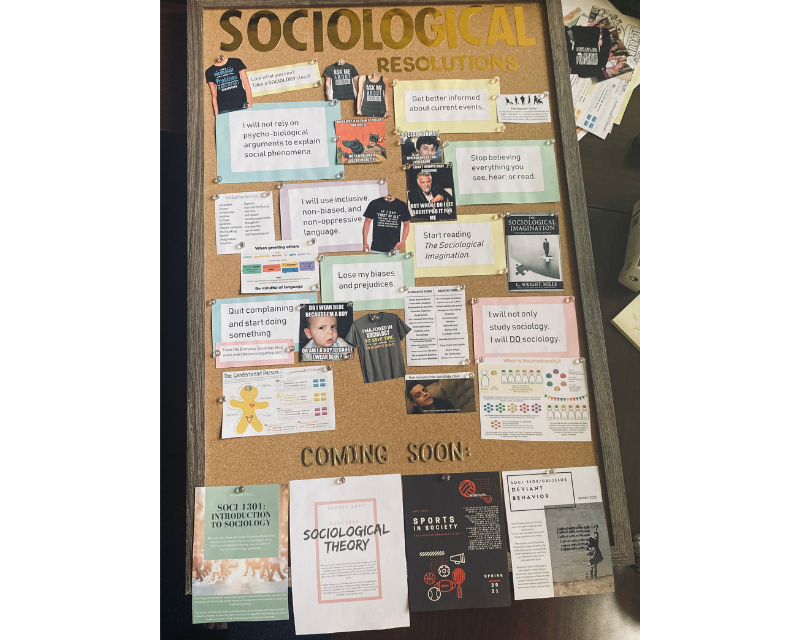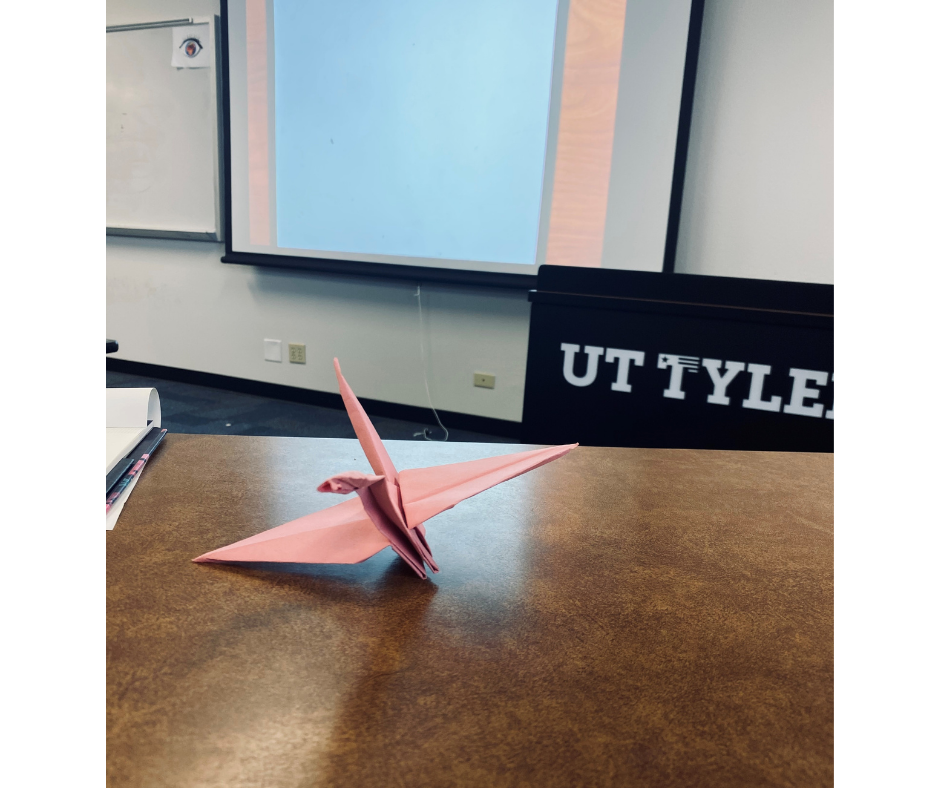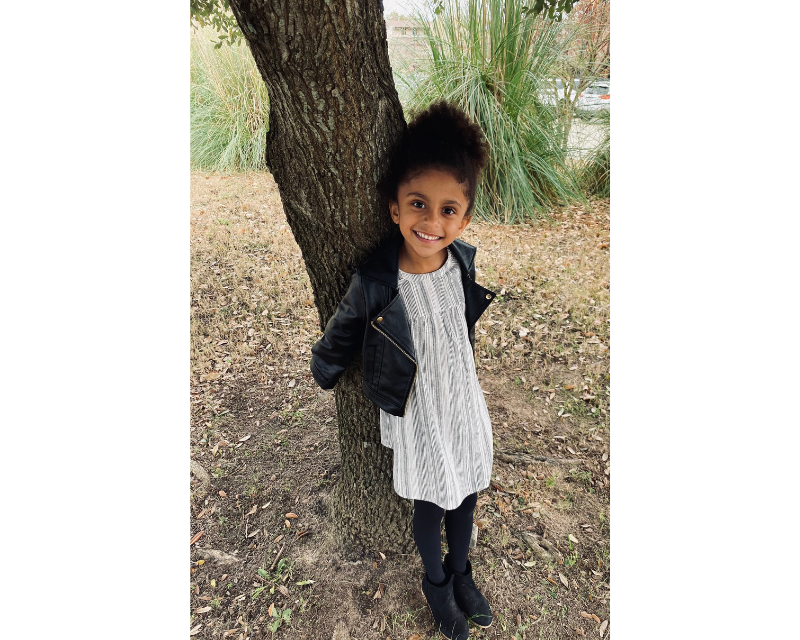Aleksandra Cregler’s Social Psychology class syllabus at UT Tyler asks several questions, including, “What leads people sometimes to hurt and sometimes to help one another? What kindles social conflict, and how can we transform closed fists into helping hands?“
These questions are always interesting to the Macedonia native sociologist, but feel more relevant than ever in 2020.
But how could Cregler model sociology’s tenet of group interaction in 2020, when pandemic warrants her students’ instruction in relative isolation?
In response to virus protocols, Cregler began hosting “picnic discussions” for her students: optional outdoor meetings to discuss ideas and create a sense of comfort and togetherness.
Amid 2020’s pandemic, followed by the surge of attention to race relations, Cregler has continuously found opportunities to seize the moment, enlightening her students.
Here are excerpts from her conversation with The Tyler Loop, edited for length and clarity.
“I come from a small country in Eastern Europe called Macedonia. Very often I get questions, ‘Are you from Estonia? Are you from Brazil?’
If you never heard of (Madedonia), it’s a small country in Eastern Europe, close to Croatia, Italy, Greece — that Mediterranean part of Europe.
And if you ever wonder how I ended up at the other side of the world, I always give the answer: If love doesn’t bring you to the other side of the world, nothing else will. I got married. Then I moved here for my family, for my husband.
I visited [Tyler], and I was so impressed by the campus of UT Tyler. I was aware of its reputation. We established a connection and the opportunity arose for me to be part of their faculty.
Bringing a diverse background is actually an advantage. Students are always asking me, ‘How is it over there?’ I couldn’t be happier. It’s a great environment to be part of.
“As sociologists say, ‘This is our time to shine.’ Everything we teach is what’s happening in the world right now. There is no bigger lesson than this.”
I’m really happy to say that specifically in the last three years, we noticed a big interest and increase in sociology. We tend to make it more dynamic. The classes are structured to not just be rooted in theory, but also to point to the applicable consequences of the theory.
As sociologists say, this is our time to shine. Everything we teach is what’s happening in the world right now. There is no bigger lesson than this.

We like to say that the biggest enemy of sociology is intuition or common sense. As the saying goes, everybody’s a sociologist ,and that’s the problem.
Common sense almost always leads students down the wrong path. Students need to unlearn their common sense and adopt a different perspective. So as a sociologist, I feel obligated to call that cognitive error that is common sense.
Sociology is a light bulb, it’s a superpower. Simply how we define things influences how we understand them. Words are more than just words. The simple definition of what multiculturalism is, what tolerance is, can contribute to problems escalating in society.
We call [our gatherings] picnic discussions. They came out completely unexpected. We are all adjusting to the new world. It was such an emotional sight to see the university so empty at that time, and I feel very bad especially for freshmen students, that they will not know how beautiful our campus was before this whole [pandemic] happened.
This crisis has forced us to be creative and to put our methodology under the spotlight and to reconsider and just be more flexible.
The university was very supportive in how we were going to manage our classes. I did not know how to structure my classes because sociology has always been a discipline rooted in dialogue and communication.
“I have felt helpless during this [virus] many times, but I never felt helpless in teaching.”
I found it really challenging to teach sociology online, especially during this time when students felt the need to talk. With our mobility restricted, we don’t have coffee bars or the [usual] hangouts. Students don’t have any social gatherings to just discuss and vent and talk about their pain.

To respect their needs and to follow the measurements, we decided to make the classes online while still providing sources for students that need that interaction and communication.
So picnic discussions turned out to be once a month. We meet with the students. It’s completely unrequired, it’s casual. We literally discuss everything. I ask my students to bring their pain, to bring their critical thinking, to bring the problems they would like to see fixed in the world.
I always see teaching as a vehicle for change, for inspiration. I have felt helpless during this [virus] many times, but I never felt helpless in teaching. So these picnics have really provided us as a community and the university to just get a sense of togetherness to just get a little hope in general.
I am a big advocate for the Montessori method of learning and the importance of the outdoors for development of children. In general, children that play outside are usually happier and calmer and a calm, happy mind is the mind that is ready to learn. So that applies to children, but why wouldn’t that apply to us as adults?
I wanted to foster a community that would be nourishing, supportive and academically fulfilling for students. So that’s how the idea came for picnic discussions.
Students love it, they look forward to it. They even asked me to do it on a more frequent basis.

We usually take our blankets, equipment, anything that makes us comfortable. Treats and beverages are provided by me just to honor my students and just to give them a sense of comfort.
It really depends on circumstances. We are spaced out depending on the numbers. We have had anywhere from five to 20 students. It is a beautiful sight. Great things come out of those meetings.
“It’s our job as educators to facilitate and to model the art of an argument. When I say argument, I don’t mean conflict, I mean the art of expressing an opinion.”
I have to admit that the first meeting was really challenging for students. What I saw with my students was pain. They grieved the social problems; they grieved the pandemic. They were so influenced by the narrative we’re surrounded with.
The first class was really challenging and it was a class with many disagreements. It’s our job as educators to facilitate and to model the art of an argument. When I say argument, I don’t mean conflict, I mean the art of expressing an opinion. We can only facilitate and teach them how to communicate that argument and not what they communicate.
I’m really happy that my students were vulnerable, honest and open. If we don’t talk about these things, then we don’t really know each other or, you know, as they say, the best way to express an opinion is to have one.
And I really want my students — as uncomfortable as it is to discuss things happening today — to be able to engage in a constructive disagreement. Disagreement strengthens our perspective and it lets us know more clearly where our views stand in contrast with other views.
I’m happy to say that at the end of those challenging times, beautiful things have arisen. There were tears and hugs at the end, and there were even initiatives to not [only] have conversation, but to advocate for something higher in the community.
So students are inspired to debate. Students are inspired to open their own NGO organizations, students are inspired to do something besides just sit and mourn every problem that they’re experiencing.
“…my students like to say that they like to be awakened. But I remind them that being awake is not a pleasant thing.”
Talking about current issues is not a pleasant experience, but it’s definitely needed. With sociology, we encourage our students not to avoid. Very often my students like to say that they like to be woke or they like to be awakened. But I remind them that being awake is not a pleasant thing.

You’re sleeping comfortably in your dream, and somebody shakes you up and wakes you up from the dream. It’s an uncomfortable feeling.
When the pandemic started, I had so many students reach out to me asking me for comment, because I teach Majority-Minority Relations, Multicultural Studies and Contemporary Social Problems. So a lot of what we [had been] discussing appeared right in front of their eyes. They were learning a bigger lesson than the theoretical lessons were learned in the classroom.
For the first time ever in their lives, they had an epiphany moment where they realized the anomie theory, when any norms and values that hold the society together no longer exist and break down. It causes conflict between the individual and with the society. I had so many emails from my students saying, ‘We’re in anomie, we’re in the state of anomie.’
“We can only change and control the things we understand. The things we don’t understand, they control and change us.”
During these picnic meetings when everything was still so fresh, students had a lot of disagreements regarding our political system, regarding the racial issues.
We can only change and control the things we understand. The things we don’t understand, they control and change us.
There is a difference between living with each other and living next to each other. Tolerance in its essence is a negative state of being. “I still don’t like you, but I tolerate you because I have to.”
America has been dealing with these racial problems for centuries. So probably the most intriguing questions that arose was, Why now? This has been happening for so long. Why are we so concerned with it right now? A lot of students said, ‘Well, now we have the time to focus on that,’ or ‘We’ve had enough and now it was time to do something about it.’
Students come to the conclusion that more dialogue is needed. Maybe we need to understand and define what the problem really is in order to solve it. Or as Jay-Z says, “When you reveal it, you heal it.” Just like any disease to be cured it needs to be diagnosed.

And that’s why students are so fascinated with sociology. And that’s why it provided not just academic background, but also life experience, life perspective.
If you’re not inspired at a university where every academic, epistemological revolution happened, then where else can we make a change if it doesn’t start here?
There is an interest, but there is also an uncomfortable feeling speaking about these issues. Students are afraid that if they give a critical opinion, then they will be portrayed to be affiliated with any political side or any political ideology.
“Maybe we should replace tolerance with [the term] respect.”
They’re scared that if they say something, it may not be appropriate and they may offend somebody who’s different than them. But I don’t believe in wrong or right answers.
I respect the vulnerability, the authenticity. We should not try to pursue them to adopt our way of thinking, but to understand and to communicate different points, to get to know each other.
Maybe we should replace tolerance with [the term] respect. And then maybe we can change our whole reality simply if we just redefined the meaning and the understanding of the words.
I want to foster a community that is open, that will not cause fear for anybody to express their opinion. I do believe that being rooted in any ideology of life [is] intellectually lazy. Being completely on the left side of politics or on the right side of politics without questioning anything and completely agreeing with everything, I just call it intellectual laziness.

I do remind them of academic decorum, that they have to be respectful. But I think just being at a university and studying on a higher level gives them a sense of responsibility.
“Having a dialogue is step one and really appreciated. But, you know, we’re not just going to hug our way out of these crises.”
Students group themselves based on mutual interests, so contact with diverse groups is not as available. Just the opportunity to have a dialogue is challenging by itself. Therefore having a dialogue is step one and really appreciated. But, you know, we’re not just going to hug our way out of these crises. That’s just not going to be our way out of here.
There has been an initiative for forming non-government organizations that will provide opportunities and facilitate and teach respect, not tolerance, in an academic way to make a change. But mainly everything revolves around having the uncomfortable experience of having contact with somebody different than you.
It all comes back to change. Our perspective needs to change.
The most ironic thing for me is that we study the United States and Europe to be the highest examples of democracy and diversity. But coming here, I saw that things are far from that. We like to credit ourselves to be socially elevated or sophisticated in a way.
“She calls herself mocha. I’m beige, her father is brown and she’s mocha. And there’s nothing more beautiful in that definition.”
Having a biracial daughter, I see these things from a different perspective.

We know that children can notice skin color by the age of six months. [By that age] they can differentiate the physical appearance of other humans. She calls herself mocha. I’m beige, her father is brown and she’s mocha. And there’s nothing more beautiful in that definition.
I want to bring five or six-year-olds in my class to give lessons to my students. I want my students to see the simplicity of understanding of self-defining as mocha and beige and just to wonder, Where have we gone wrong?
My greatest hope is to just provide my students with a calm, happy mind that is ready to learn. At this point, when they come to higher education, they’re already formed individuals.
If they’re sitting on a regular day watching TV or talking to their friends and anything comes out from what we discussed as a light bulb, then I’ve done my mission successfully.
I want them to always be challenged with why to always bring a sense of curiosity and always challenge not just science itself, not just academia itself, but challenge themselves.”
Thanks for reading this story. Just one more thing. If you believe in the power of local journalism here in Tyler, I'm hoping that you'll help us take The Loop to the next level.
Our readers have told us what they want to better understand about this place we all call home, from Tyler's north-south divide to our city's changing demographics. Power, leadership, and who gets a seat at the table. How Tyler is growing and changing, and how we can all help it improve. Local arts, culture, entertainment, and food.
We can't do this alone. If you believe in a more informed, more connected, more engaged Tyler, help us tell the stories that need to be told in our community. Get free access to select Loop events, behind-the-scenes updates about the impact and goals of our work, and, above all, a chance to play a part in bringing more fresh, in-depth, unexpected journalism to Tyler.








